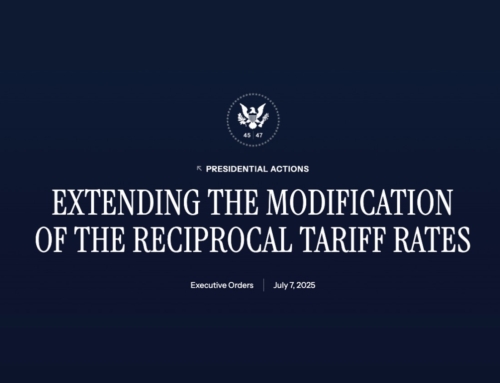On May 18, 2020, the Animal and Plant Health Inspection Service (APHIS), a part of the U.S. Department of Agriculture (USDA), announced a change to import regulations for genetically engineered (GE) organisms. Shippers will now have the choice to complete a regulatory status review (RSR) before being imported to determine if a permit is required, or to directly apply for a permit. If APHIS is not able to make a determination, the GE plant will only be allowed to be imported under permit.
“We are amending the regulations regarding the movement (importation, interstate movement, and environmental release) of certain genetically engineered organisms in response to advances in genetic engineering and our understanding of the plant pest risk posed by genetically engineered organisms, thereby reducing the regulatory burden for developers of organisms that are unlikely to pose plant pest risks.”
Genetically Engineered Organisms that require a permit:
- plant pests
- non-plant organisms that pose plant pest risks
Genetically Engineered Organisms that DO NOT require a permit:
- non-plant organisms that do not pose plant pest risks
Once APHIS has reviewed a product and found it not to post a plant pest risk, similar products would also be exempt.
FEDERAL REGISTER: FINAL RULE MOVEMENT OF CERTAIN GENETICALLY ENGINEERED ORGANISMS
FILING TIMELINES
- Regulatory Status Review – 60 to 180 days
- Publication of Results & Comment Period – 15 months
- Import Permits – up to 45 days
SELF-DETERMINATION
Under the June 2019 proposed rule, developers have the option to determine whether their plants belong to one of the categories that are exempt from the regulations. Developers may request a “Confirmation Letter” from APHIS validating the determination.
The process of “Self-Determination” will provide developers with regulatory relief and open more efficient and predictable pathways for innovators to get new modified plants that do not require regulation to market, and in turn supporting further innovation.
However, if a developer makes a self-determination that APHIS determines not to be valid – the developer may be subject to remedial measures or penalties.
Developers may request a “Confirmation Letter” from APHIS validating the determination.
EXEMPTIONS
- The genetic modification is solely a deletion of any size; or
- The genetic modification is a single base pair substitution; or
- The genetic modification is solely introducing nucleic acid sequences from within the plant’s natural gene pool or from editing nucleic acid sequences in a plant to correspond to a sequence known to occur in that plant’s natural gene pool;
- The plant is an offspring of a GE plant and does not retain the genetic modification in the GE plant parent;
- modified plants would not be subject to the regulations if they have plant-trait-mechanism of action (MOA) combinations that are the same as those of modified plants for which APHIS has conducted a regulatory status review (RSR) and found not to be subject to the regulations.
17-MONTH PHASED IMPLEMENTATION
New regulations will be phased in over the course of 17 months:
- June 17, 2020 – APHIS will stop accepting “Am I Regulated” requests
- August 17, 2020 – APHIS will begin issuing Confirmation Letters to developers that Self-Determine
“In the intervening 60-day period, developers can self-determine regulated status according to the legacy definition of regulated article; APHIS is available to respond to requests for assistance in such determinations. Alternatively, developers may seek permits or use the legacy notification process during that time period in order to import regulated articles.”
- April 4, 2021 – Developers may no longer submit petitions for de-regulation for any GE plants.
- April 5, 2021 – New regulatory provisions for permitting in effect; APHIS will discontinue receiving petitions and begin to accept RSR requests for corn, soybeans, cotton, potatoes, tomatoes and alfalfa. APHIS will continue to receive petitions for all other GE plants and organisms.
- October 1, 2021 – APHIS will discontinue receiving all petitions and begin accepting RSR requests for any GE plant.
This final rule is effective August 17, 2020 and is the first comprehensive revision of the regulations since they were established in 1987.
FEDERAL REGISTER: FINAL RULE MOVEMENT OF CERTAIN GENETICALLY ENGINEERED ORGANISMS
As Green continues to monitor the situation, stay up-to-date on freight news by following us on Facebook, Twitter, and LinkedIn. For continuous updates, make sure to check out our website at greenworldwide.com.






